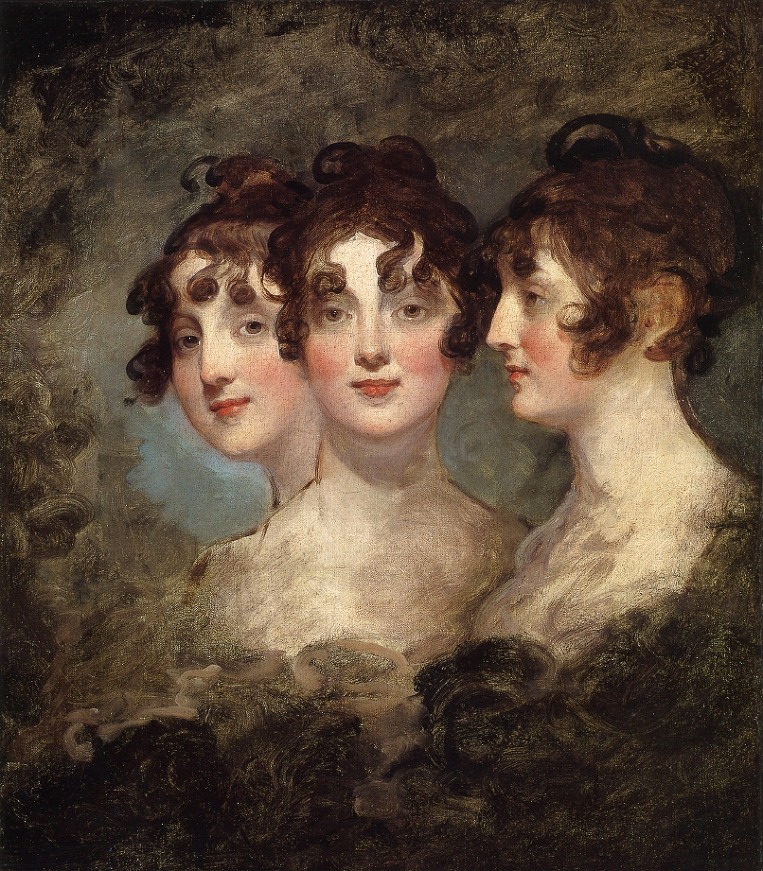(For the beginning of this story, see
"Fanny Kemble Comes to Philadelphia.")
Charles Greville, an English friend of Fanny's, wrote of her early in her marriage: "She has discovered she has married a weak, dawdling, ignorant, violent tempered man...." His further description of her shows a woman ill-equipped to handle such a husband: "With all her prodigious talents, her fine feelings, noble sentiments, and lively imagination, she has no tact, no judgment, no discretion."
Fanny and Pierce Butler were not going to have an easy time of it, and their estrangement was further exacerbated by their disagreement over the most important moral and social issue of the day: Fanny despised slavery while Pierce, who derived his income from family holdings in the South, not only supported it but owned slaves.
For a decade after their marriage, which saw the birth of two daughters, the Butler's spent their time at either Butler Place, their estate outside Philadelphia, or in England, taking time for one long visit in 1838-39 to the Butler plantations in Georgia.
In 1844, having overspent in England on their recent stay, Butler rented out their estate for the income and the family was living in a boardinghouse in Philadelphia. But the couple was hardly united although they were under one roof. Pierce and the children were living in separate quarters from Fanny, and he was permitting her only the briefest contact with her daughters.
Their situation was made worse when in April 1843 Pierce was challenged by an irate husband and fought a duel. (Both men survived it unharmed.) Fanny seems to have been aware of some of her husband's previous infidelities but was now subjected to public humiliation.
It was later that year that Sarah Moses, the niece whom Rebecca had raised, suggested that her aunt should call on Fanny. Rebecca at first refused, feeling that since Fanny's "uncomfortable" affairs were the talk of the town, it would be "impertinent" for a stranger to seek her out.
Shortly thereafter, in January 1844, Rebecca came home to find that Fanny had left her visiting card. The two women then began the tedious exchange of cards required by etiquette and eventually met by early February. On the 6th, Rebecca wrote to her nephew-in-law Solomon Cohen that Fanny had "some noble traits of character and great talents." She also noted that Catharine Sedgwick, a popular novelist and a mutual friend of hers and Fanny's, was now in town and would be coming with Fanny for tea that Saturday.
Rebecca did not mention Fanny often in her letters, but Julia Hoffman, who was staying with the Gratz's that spring of 1845 reported to her brother George that he would have enjoyed hearing "Mrs. Butler sing some Scotch ballads which she did most beautifully without any accompaniment -- just sitting sewing by the table with us." This quiet domestic picture indicates that in the year since they had met Rebecca and Fanny had developed an intimate and relaxed friendship far removed from the formalities of visiting cards.
By this time the Butler marriage was over. Fanny was living apart from Pierce, driven away by his ill-treatment and his refusal to let her see her daughters. In September, Rebecca wrote:
"Poor Fanny Butler at last finds that she cannot longer sustain her painful & useless efforts to remain with her children, and leaves this city tomorrow....Mr. B. has found so many ways of thwarting her and rendering her miserable, that even her own sense of right now determines her to give up & depart....We shall feel her loss deeply and sorrowfully, for we love her very much, and the thought of her unhappiness is even more painful than the loss of her society. She has endeared herself to us by her noble qualities, her brilliant talents, and ardent love and practice of rare virtues...."
Although they would be separated for several years, Rebecca would continue to be a good friend to Fanny.
(Charles Greville's comments are from Major Butler's Legacy: Five Generations of a Slaveholding Family, by Malcolm Bell, Jr. Other books about Fanny Kemble consulted include Fanny Kemble's Civil Wars, by Catherine Clinton, and Fanny and Adelaide, by Ann Blainey.
Julia Hoffman's letter is in the Fenno-Hoffman Papers at the University of Michigan. The quotations from Rebecca are from letters in the Miriam Gratz Moses Cohen Collection, No. 02639, Southern Historical Collection, University of North Carolina at Chapel Hill.)





